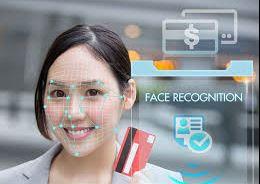
Sacramento, CA – In a move to protect privacy and prevent misuse of technology, the California State Assembly today approved AB 1215, a proposal by Assemblymember Phil Ting (D-San Francisco) that bans law enforcement from using facial recognition and biometric scanners in body cameras. Body cameras are typically adopted for accountability and transparency purposes, not to serve as roving surveillance systems. In addition, face scanning technology routinely misidentifies people, particularly women, youth and people of color.
“Without my bill, face recognition technology can subject law-abiding citizens to perpetual police line-ups, as their every movement is tracked without consent. Its use, if left unchecked, undermines public trust in government institutions and unduly intrudes on one’s constitutional right to privacy. AB 1215 is an important civil rights measure that will prevent exploitation of vulnerable communities,” said Ting.
Digital privacy has increasingly become a concern among Californians. In a March 2019 American Civil Liberties Union (ACLU) poll, 82% of likely voters statewide and 79% in the Bay Area disagreed with the government being able to monitor and track a person using biometric information. Such support is not surprising, in light of reports that technology developed by the U.S.’s top online retailer falsely identified 28 sitting members of Congress as people who have been arrested for crimes. The CEO of the largest provider of body cameras has also stated that facial recognition technology was not accurate enough to be deployed on his company’s products.
“Body cameras should work for the people, not against the people,” says Matt Cagle, Technology and Civil Liberties Policy Attorney for the ACLU of Northern California. “Face-scanning body cameras would be a dangerous, radical expansion of surveillance powers at a time when our top priority should be creating new approaches to public safety that work for all of us.”
Local Bay Area cities are also troubled by the implications of this still imperfect technology and are set to take action against its use. The San Francisco Board of Supervisors will vote on a proposal May 14 that bans local agencies from purchasing or using facial recognition technology. Oakland is also considering a similar prohibition. Both proposals go further than AB 1215, which only applies the ban to police-worn body cameras.
Ting’s proposal moves to the Senate for consideration. This year’s deadline for all bills to reach the Governor’s desk is September 13.
# # # # #